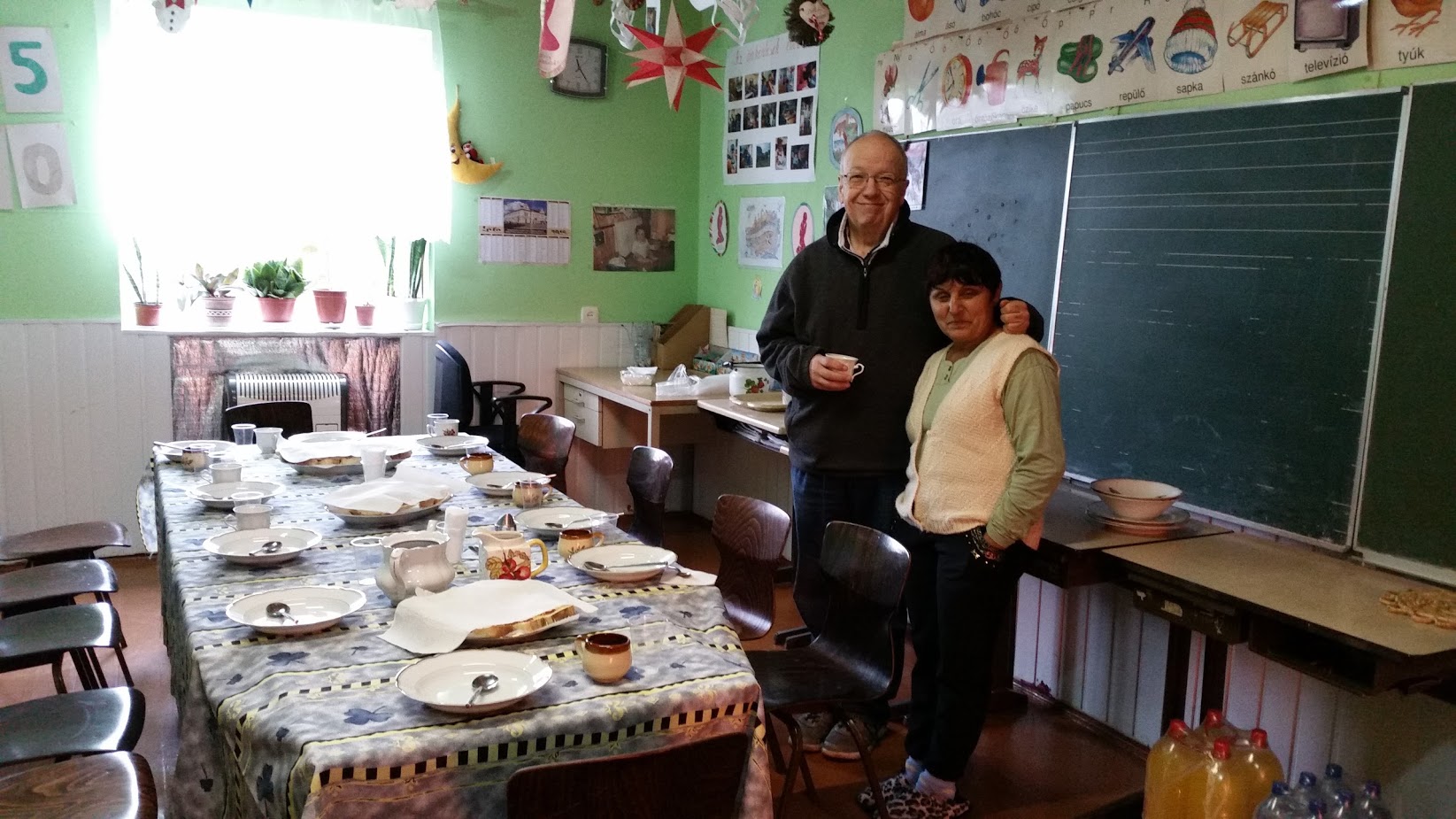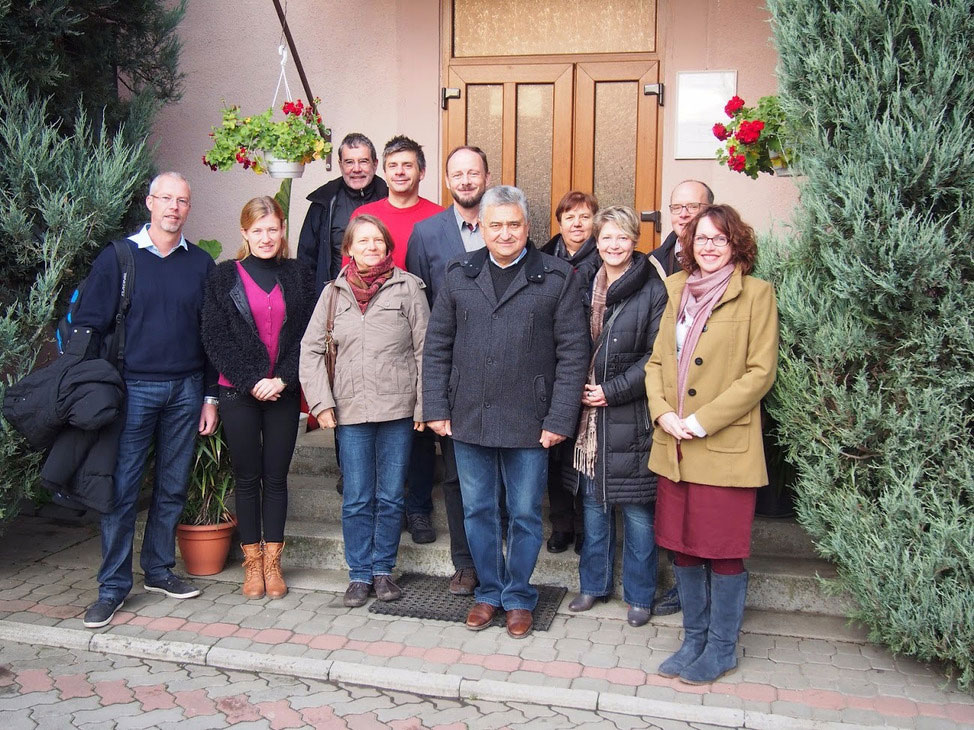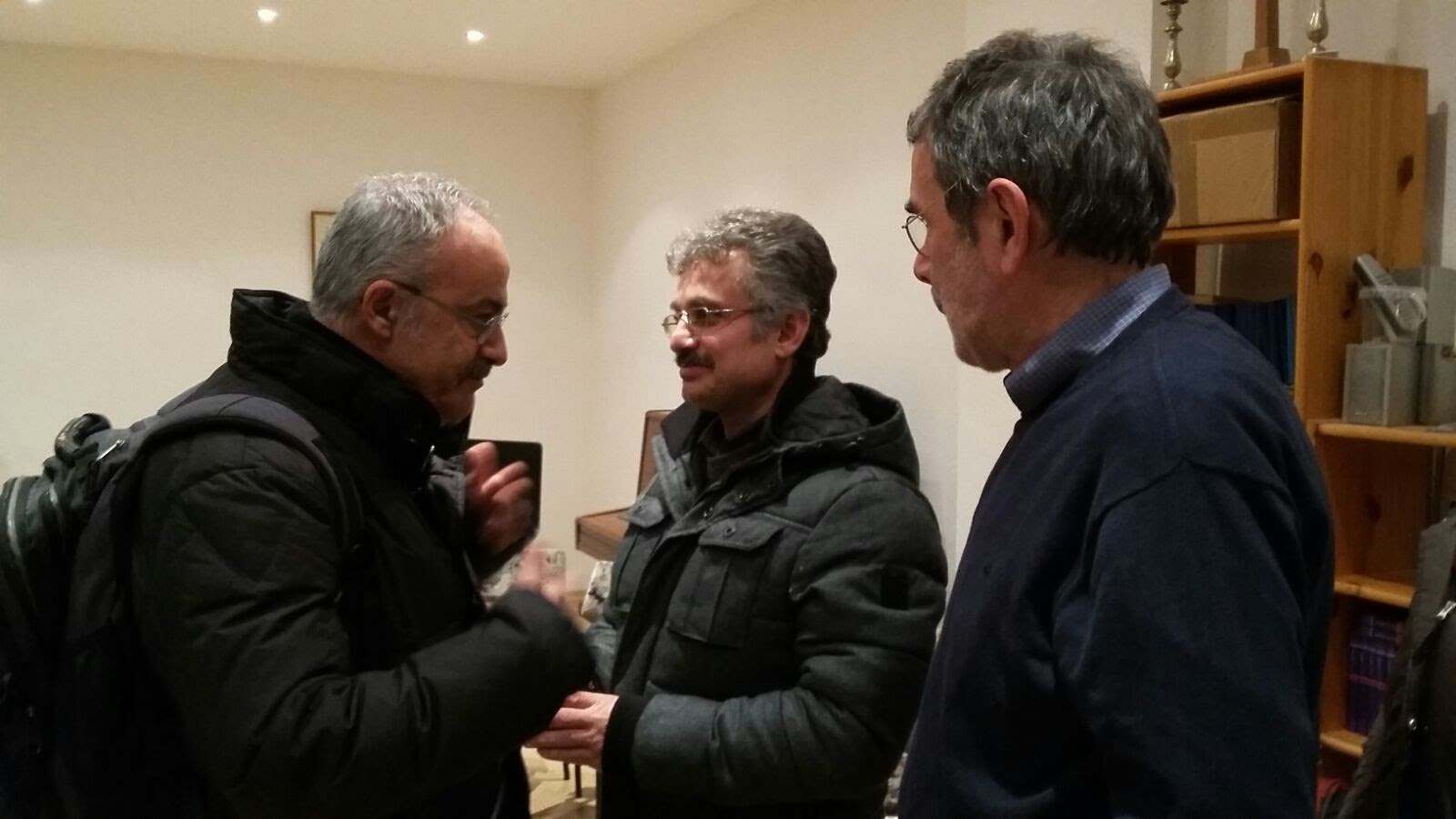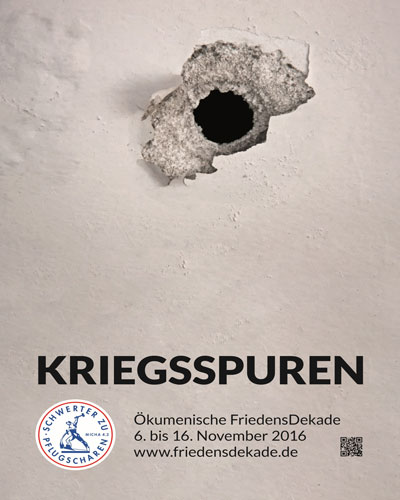A letter from Burkhard Paetzold serving in Germany
November 2016
Write to Burkhard Paetzold
Individuals: Give online to E200392 for Burkhard Paetzold’s sending and support
Congregations: Give to D506900 for Burkhard Paetzold’s sending and support
Churches are asked to send donations through your congregation’s normal receiving site (this is usually your presbytery).
Let us hold fast the confession of our hope without wavering, for he who promised is faithful. And let us consider how to stir up one another to love and good works, not neglecting to meet together, as is the habit of some, but encouraging one another, and all the more as you see the Day drawing near (Hebrews 10:23-25).
Dear Friends,
Every single person is unique and important in God’s plan
In October I was in Ukraine and I met with Jolan, a Romani in the village of Gat who has been a teacher and caregiver to Roma children for a long time. Several of you know her for her faithful life and work. These days the Reformed Church in Carpath, Ukraine, one of Presbyterian World Mission’s partners in mission, is changing its ministry among the Roma. It is planned that each local pastor will not only be responsible for his own congregation but also for the Roma congregation nearby. The church is stressing that ministry with Roma is to become more integrated. It wants the church’s preschools, kindergartens and grade schools to join a legal framework of the Ukrainian education system.
God’s creation is targeted on an ultimate aim
The Bible tells us that God aims for shalom: justice, peace and the integrity of Creation.
To aim for justice? — It is plain to see that the gap between the very rich and the very poor is getting wider and wider in the world. I learned recently in Ukraine that a “youth drain” is happening there, leaving the elderly and those with limited abilities behind. Many young individuals and families are leaving the country, not only to avoid being drafted into the army for the war in Eastern Ukraine, but also because of well-paying jobs offered in neighboring EU economies. How can we continue to hope?
My personal hope comes from social initiatives and volunteers working with refugees in my neighborhood in Berlin. My hope comes from meeting Christians and congregations that take small steps in advocacy and social work in spite of the trends described. While in Ukraine a few weeks ago, I visited the Diaconal Center in Beregszasz with church members there. I was impressed to see their work with seniors, families in crisis, a new program for home care, and two daycare centers for children with disabilities.
To aim for peace? — With our eyes wide open we can see that we plant seeds of military interventions and arms trade, then harvest civil wars, failed states and refugees. Root causes of violence and war are fueled. There are groups that do not welcome refugees. How can we continue to hope?
My personal hope raises when people like Dora Kaniszai Nagy of the Reformed Refugee Mission in Hungary visits many PC(USA) congregations as an international peacemaker and shares her insights about waging peace in that nation.
My hope is lifted because my home congregation has invited Christian and Muslim Syrians to our church to share insights and experiences from the situation in Syria. German churches celebrate “Ten Ecumenical Days for Peace” (Ökumenische Friedensdekade) every November. The theme this year is “Kriegsspuren” (Traces of war). By reflecting on how 70 years after WWII the current thinking of Germans and their neighbors is still affected by traces of war, we hope to put all emphasis on reconciliation.
To aim for the integrity of God’s Creation? — If we are honest, we see that our lifestyle and our greed are destroying God’s Creation. We see Creation as God-given, seemingly unchangeable, but recent experience shows that our ignorance is changing the climate, genetically modifying species, making large areas of our earth uninhabitable because of pollution. — How can we continue to hope?
I learned my lessons from “Kirchliches Forschungsheim” (Church Research House) in Wittenberg, Germany. (Wittenberg is the place where German Protestants will celebrate the 500th anniversary of Luther’s posting of his 95 theses.) This small Christian institution has enlightened us in its publications already in the ’70s and ’80s and initiated protests against the destruction of God’s Creation. Examples were “Mobil ohne Auto” (Be Mobile without a Car), “Anders Gärtnern—aber wie?” (Alternative Gardening—how to?) We learned about the mining of uranium in East Germany and the risks of genetic modifications of life.
Facing guilt — God’s plan is aiming for reconciliation
A few days ago I visited a Syrian orthodox lay leader in Berlin in order to invite him to speak in my home church during our above-mentioned peace days. He invited me for a cup of tea and explained the situation of Christians in the Middle East. He told me that everyone suffers in Syria from the war, Muslims and Christians alike. The difference is when the war will finally be over, Muslims will go back to their rebuilt mosques once again. Christians will have no place to go. It’s like the Armenian genocide. The West has closed its eyes, hasn’t spoken up. I mentioned I’d heard stories from Coptic churches in Egypt about Muslim neighbors protecting them during the riots.
He told me that every Western intervention started without a plan following the regime change; Afghanistan, Iraq, and Libya were just a few examples. He continued, “Local and national Christians haven’t been part of these plans in the long run. It is a power struggle aimed at strategic political or economic goals.” And then he added: “We, Eastern Christians, don’t fit into these plans. We are asked to love those who hate and persecute us. Our aim has to be reconciliation.”
I thought for a long time about our conversation. What happens, if our rulers only follow their own narrow concepts and strategic goals and we Christians say, “We don’t fit into your plans because we have to follow God’s plan”?
We are asked to “Stir up one another to love and good works … encouraging one another”
I’m trying to learn about God’s plan in my own life and in my ministry as a regional liaison for Presbyterian World Mission and partners in Central Eastern Europe, and I can see how my colleagues in ministry are searching for this hope too. Clearly we would be unable to do this without your prayers and financial support. Let us be in community, where we each boldly offer our specific gifts. Your love and good works, as well as that of the Christians and churches we accompany, encourages us and I’m grateful for you all, near and far.
Grace and peace,
Burkhard
![]() You may freely reuse and distribute this article in its entirety for non-commercial purposes in any medium. Please include author attribution, photography credits, and a link to the original article. This work is licensed under a Creative Commons Attribution-NonCommercial-NoDeratives 4.0 International License.
You may freely reuse and distribute this article in its entirety for non-commercial purposes in any medium. Please include author attribution, photography credits, and a link to the original article. This work is licensed under a Creative Commons Attribution-NonCommercial-NoDeratives 4.0 International License.



